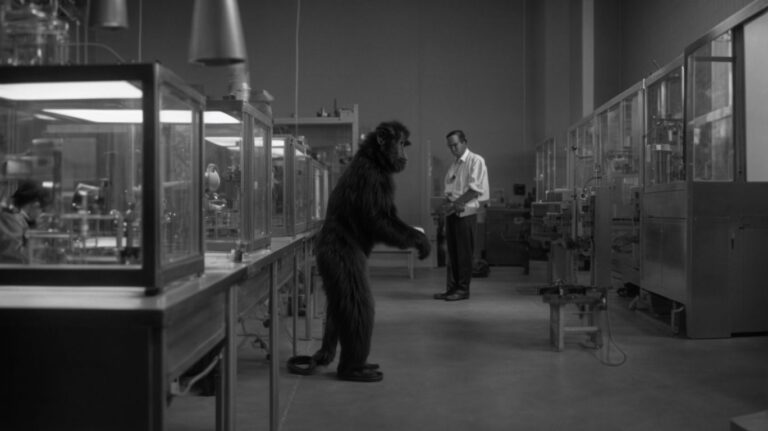Psychology is a complex and fascinating field that delves into the inner workings of the human mind. But have you ever wondered about its origins and evolution over time?
In this article, we will trace the history of psychology, exploring its roots in philosophy, physiology, and medicine, and how it has evolved into a scientific field. From early philosophers and physicians to the emergence of modern perspectives and approaches, we will uncover key milestones and pivotal moments that have shaped the history of psychology.
Join us as we embark on a journey through time to understand the rich tapestry of this captivating field.
Contents
- 1 Key Takeaways:
- 2 What is Psychology?
- 3 What are the Roots of Psychology?
- 4 When Was Psychology First Recognized as a Scientific Field?
- 5 What Are Some Key Milestones in the History of Psychology?
- 6 How Has Psychology Evolved Over Time?
- 7 Frequently Asked Questions
- 7.1 1. How old is the field of psychology?
- 7.2 2. What is the earliest known psychological exploration?
- 7.3 3. Who is considered the father of modern psychology?
- 7.4 4. How did psychology evolve over time?
- 7.5 5. What impact did Sigmund Freud have on the field of psychology?
- 7.6 6. How has the field of psychology grown and expanded in recent years?
Key Takeaways:
- Psychology is a field that studies the human mind and behavior.
- Its roots can be traced back to philosophy, physiology, and medicine.
- The evolution of psychology has led to the integration of different perspectives and approaches, increased focus on diversity and inclusion, and expansion of research methods and techniques.
What is Psychology?
Psychology is the scientific study of the human mind, behavior, and mental processes, encompassing a wide range of topics such as consciousness, nature vs. nurture, educational psychology, and biological foundations.
This discipline employs various research methodologies to explore and understand human thought and behavior, including laboratory experiments, surveys, observational studies, and clinical trials.
Psychology also delves into the complexities of cognitive processes, emotional development, social interactions, and abnormal behavior, shedding light on the mechanisms underlying psychological disorders and their treatments.
This multifaceted field encompasses diverse areas of study, including clinical, forensic, organizational, and educational psychology, along with neuropsychology, developmental psychology, and social psychology.
What are the Roots of Psychology?
The roots of psychology can be traced back to its historical origins, marked by the works of influential figures such as Wilhelm Wundt, William James, and the philosophical underpinnings of dualism and introspection.
Philosophy
The relationship between psychology and philosophy is rooted in the exploration of consciousness, dualistic perspectives, and the enduring debate of nature vs. nurture, reflecting the intertwined nature of these disciplines.
Psychology and philosophy share a common interest in the investigation of human consciousness, dualism, and the complex interactions between genetic inheritance and environmental factors.
Philosophical inquiries into the nature of the mind and its connection to the body have influenced the development of psychological theories, shaping our understanding of the self and personal identity.
The exploration of consciousness has been a focal point for both disciplines, with philosophy diving into the nature of subjective experience, and psychology utilizing empirical methods to study mental processes.
This collaboration has fostered insight into the mind-body relationship, enriching our comprehension of the human experience.
Physiology
The connection between psychology and physiology lies in the intricate workings of sensory systems, biological foundations, and their influence on human behavior and mental processes, highlighting the interdisciplinary nature of these domains.
Psychology and physiology are deeply intertwined, as psychological processes often rely on intricate physiological mechanisms.
For instance, the visual system’s role in processing information from the environment demonstrates the interplay between sensation and perception. The intricate neural pathways associated with auditory perception exemplify the biological underpinnings of sensory experiences.
Understanding these connections is crucial in comprehending how biological factors impact human behavior and mental functions, bridging the gap between the realms of psychology and physiology.
Medicine
The integration of psychology and medicine encompasses clinical work, neuroscience advancements, and the exploration of the unconscious mind, reflecting the collaborative efforts in understanding mental health and well-being.
The clinical applications of this integration are evident in the holistic approach to patient care, where psychological factors are considered alongside medical treatment.
Neuroscientific developments have shed light on the intricate mechanisms underlying mental disorders, paving the way for more targeted interventions.
The study of the unconscious mind offers insights into the root causes of certain psychological conditions, leading to more comprehensive therapies.
This intersection continues to evolve, offering promising avenues for enhancing patient outcomes and overall well-being.
When Was Psychology First Recognized as a Scientific Field?
The recognition of psychology as a scientific field can be attributed to the pioneering efforts of early philosophers, physicians, and the establishment of scientific methodologies and laboratory-based research, marking a significant milestone in the evolution of psychology.
Early Philosophers and Physicians
The early exploration of psychology by philosophers and physicians laid the groundwork for scientific inquiry, marked by introspective observations and the development of methodological approaches to understanding human behavior and mental processes.
Early philosophers, such as Aristotle and Plato, contemplated the nature of the mind and its connection to behavior. Their ideas paved the way for the systematic study of human psychology.
Physicians like Hippocrates also made significant contributions by emphasizing the influence of biological factors on mental health. This perspective helped shape the understanding of the mind and its complexities.
Through the practice of introspection, individuals like Wilhelm Wundt and Edward Titchener provided a disciplined approach to examining conscious thoughts and sensations. Their contributions were crucial in establishing psychology as a scientific discipline.
Wundt and Titchener’s efforts also led to the formulation of experimental methods and laboratory research, which became integral to the evolution of psychological inquiry. These methods continue to be used in modern psychological research, highlighting the enduring impact of their work.
Wilhelm Wundt and Structuralism
Wilhelm Wundt’s groundbreaking work in psychology, particularly in the realm of structuralism and the establishment of the first psychological laboratory, heralded a new era of scientific exploration into consciousness and the processing of sensory stimuli.
By establishing the first laboratory dedicated to the experimental study of mind and behavior, Wundt provided a platform for systematic observation and measurement of mental processes. This pioneering effort laid the foundation for modern psychology. His emphasis on introspection and objective analysis of sensory experiences also paved the way for the study of consciousness.
Through his influential writings and teachings, Wundt’s impact on the development of psychology as a scientific discipline remains unparalleled. His contributions continue to shape the field and influence current research and practices.
Sigmund Freud and Psychoanalysis
Sigmund Freud’s introduction of psychoanalysis reshaped the landscape of psychology by diving into the depths of the unconscious mind, influencing both clinical work and the understanding of human behavior and mental processes.
The pioneering exploration of the unconscious mind brought to light the intricate complexities that shape human thoughts, emotions, and behaviors.
Freud’s psychoanalytic theory provided a framework for understanding the hidden motives and repressed desires that drive human actions, offering profound insights into the complexities of the human psyche.
The clinical application of Freud’s psychoanalytic techniques revolutionized the treatment of various psychological disorders, paving the way for the development of modern psychotherapy.
His emphasis on the significance of early childhood experiences and the dynamics of the unconscious in shaping adult personality profoundly impacted the fields of psychiatry and psychology, fostering a deeper comprehension of human behavior and reinforcing the interconnectedness of conscious and unconscious processes.
Behaviorism and the Rise of Experimental Psychology
The emergence of behaviorism and experimental psychology, spearheaded by figures such as John B. Watson and B. F. Skinner, ushered in a new era of scientific inquiry focused on human behavior, methodological rigor, and laboratory-based investigations.
This shift in psychological inquiry marked a departure from the introspective methods championed by earlier schools of thought, instead placing a significant emphasis on observable behaviors and the environmental factors influencing them.
Watson’s renowned ‘Little Albert’ study, which demonstrated the conditioning of fear in a young child, and Skinner’s pioneering work on operant conditioning, showcased the potential of experimental psychology to uncover the determinants of behavior.
The ascendance of behaviorism and experimental psychology established a foundation for the application of scientific methodologies to understand and modify human behavior, contributing to the development of fields such as behavior modification, applied behavior analysis, and cognitive-behavioral therapies.
Humanistic Psychology
The emergence of humanistic psychology, championed by Carl Rogers and Abraham Maslow, underscored the significance of human consciousness, behavior, and education, reshaping the discourse on nature vs. nurture and individual potential.
Humanistic psychology emphasizes the positive attributes of individuals, focusing on their capacity for growth, self-actualization, and the realization of their potential. The approach encourages a person-centered perspective, highlighting the importance of empathy, unconditional positive regard, and authenticity in fostering psychological well-being.
It also advocates for an understanding of human behavior in the context of personal experiences, intrinsic motivation, and the pursuit of meaning and fulfillment.
These foundational principles have important implications in education, promoting a supportive and nurturing environment that values individual differences and encourages personal growth and development.
Cognitive Revolution and Modern Psychology
The cognitive revolution marked a transformative shift in psychology, leading to the prominence of cognitive psychology, the exploration of consciousness, mental processes, and the integration of neuroscience to advance scientific research methodologies.
This revolution brought about a fundamental change in the way psychologists approached the study of the mind, shifting focus from strict behaviorism to understanding the complex mechanisms underlying human cognition.
As a result, the study of consciousness gained newfound attention, with researchers diving into the intricate workings of the human mind.
Mental processes such as perception, memory, language, and problem-solving became central topics of inquiry within the realm of cognitive psychology, leading to a deeper understanding of how humans process information and interact with their environment.
The subsequent integration of neuroscience into psychological research broadened the scope of inquiry, allowing for the exploration of brain structures and functions that underlie cognitive processes.
What Are Some Key Milestones in the History of Psychology?
The history of psychology is marked by significant milestones, including the establishment of the American Psychological Association, the development of the DSM, the introduction of psychotherapy, and the emergence of positive psychology, shaping the trajectory of psychological practice and research.
Establishment of the First Psychological Laboratory
The establishment of the first psychological laboratory, pioneered by G. Stanley Hall and the influential work of Hermann Ebbinghaus, marked a foundational milestone in the adoption of scientific methods and approaches within psychological research.
It not only laid the groundwork for the systematic observation and experimentation in psychology but also set the stage for the development of key concepts and methodologies that continue to shape the field today.
Hall’s laboratory at Johns Hopkins University, established in 1883, provided a dedicated space for the rigorous study of human behavior and mental processes, pioneering the application of experimental methods in a laboratory setting.
Meanwhile, Ebbinghaus’s significant contributions to the understanding of memory and learning were instrumental in establishing empirical research as a cornerstone of psychological inquiry.
Formation of the American Psychological Association
The establishment of the American Psychological Association served as a pivotal milestone for the unification of diverse psychological endeavors, promoting research, educational advancements, and advocating for the integration of psychological principles into clinical practice.
Since its inception in 1892, the American Psychological Association has played a central role in shaping the field of psychology. Its founding brought together various branches of psychology, including clinical, developmental, and industrial-organizational, under a unified umbrella.
This unity not only fostered collaboration and knowledge-sharing but also set standards for ethics and professional conduct.
The association’s commitment to research has been instrumental in advancing the understanding of human behavior, cognition, and mental health.
The influential organization has been at the forefront of educational initiatives, promoting the dissemination of psychological knowledge through publications, conferences, and educational programs.
By providing resources and platforms for psychologists to share their findings and expertise, the APA has facilitated advancements in the field and promoted evidence-based practices.
Another crucial aspect of the APA’s impact lies in its relentless advocacy for the integration of psychological principles into various domains, particularly clinical practice.
Its advocacy efforts have contributed to the recognition of psychology as a vital component of healthcare, influencing the development of treatment methodologies and strategies across diverse populations and settings.
Development of the DSM (Diagnostic and Statistical Manual of Mental Disorders)
The development of the DSM represents a pivotal milestone in the classification and understanding of mental disorders, influencing clinical practice, research methodologies, and the treatment of psychological conditions.
Since its inception in the 1950s, the Diagnostic and Statistical Manual of Mental Disorders (DSM) has evolved through several revisions, each reflecting the changing landscape of psychiatric knowledge and clinical practice.
The DSM has played a significant role in shaping the diagnosis and treatment of mental illnesses, providing a common language for clinicians and researchers to categorize and study psychological conditions.
Its impact extends beyond clinical settings, influencing public perceptions and policies related to mental health.
The DSM has provided a framework for standardizing diagnostic criteria, enabling consistent identification and management of mental disorders across diverse healthcare settings.
Introduction of Psychotherapy
The introduction of psychotherapy marked a significant milestone in the application of psychological principles to clinical practice, fostering therapeutic interventions, and enhancing mental health treatment approaches.
Psychotherapy has a rich historical background, dating back to the late 19th century. Its advent revolutionized the way mental health disorders were perceived and treated.
The emergence of key figures such as Sigmund Freud, Carl Jung, and Carl Rogers contributed to the diversification of therapy modalities, including psychodynamic, humanistic, and cognitive-behavioral approaches.
The evolution of psychotherapy has significantly influenced clinical work, emphasizing the importance of evidence-based practices and the integration of cultural sensitivity in therapy.
This has led to a more holistic and individualized approach to mental health treatment, acknowledging the diverse needs and experiences of clients.
Emergence of Positive Psychology
The emergence of positive psychology represented a pivotal milestone in psychology’s focus on well-being, human flourishing, and the scientific exploration of positive aspects of human experience, marking a paradigm shift in psychological research and practice.
By shifting the traditional focus from pathology and dysfunction to the understanding and enhancement of positive human experiences, positive psychology has significantly influenced the trajectory of psychological research and practice.
This approach has led to a broader understanding of human psychology and has opened avenues for the study of resilience, optimism, happiness, and other dimensions of well-being.
Positive psychology has fostered the development of interventions and therapies aimed at promoting human flourishing and enhancing individuals’ overall quality of life.
The emphasis on strengths, virtues, and positive emotions has not only enriched the field of psychology but also contributed to the formulation of evidence-based practices that promote mental and emotional well-being.
How Has Psychology Evolved Over Time?
The evolution of psychology over time has been characterized by the expansion of research methods and approaches, the integration of different perspectives, and an increased focus on diversity and inclusion within the discipline.
Expansion of Research Methods and Techniques
The evolution of psychology has witnessed a significant expansion in research methods and techniques, encompassing advanced scientific methodologies, laboratory-based investigations, and the exploration of diverse stimuli to understand human behavior and mental processes.
Modern psychological research leverages an array of sophisticated tools and technologies to delve into the complexities of the human mind.
The use of fMRI and EEG for neuroimaging allows scientists to investigate brain activity in response to various stimuli, providing crucial insights into cognitive processes.
Advances in statistical analysis have enhanced the precision and reliability of experimental findings, facilitating a deeper understanding of human behavior.
Researchers also employ innovative experimental paradigms, such as virtual reality simulations and eye-tracking technology, to explore the intricacies of human perception and decision-making.
Integration of Different Perspectives and Approaches
The evolution of psychology has involved the integration of diverse perspectives and approaches, encompassing behaviorism, the cognitive revolution, the influence of neuroscience, and an increasing focus on social and cultural factors in understanding human behavior and mental processes.
Behaviorism, pioneered by John B. Watson and B.F. Skinner, focuses on observable behavior and its environmental influences, while the cognitive revolution, led by Ulric Neisser and George Miller, shifted the spotlight to internal mental processes such as thinking and perception.
Neuroscience’s impact on psychology has been profound, with advancements in brain imaging techniques illuminating the neural underpinnings of various behaviors and mental disorders. The field’s growing emphasis on social and cultural factors recognizes the importance of societal influences on individual psychology.
Increased Focus on Diversity and Inclusion
The evolution of psychology has seen an amplified focus on diversity and inclusion, reflecting a commitment to understanding the educational, learning, and decision-making processes across diverse populations within the discipline.
This heightened emphasis on diversity and inclusion within the field of psychology has led to a deeper understanding of the unique experiences and perspectives of individuals from different cultural, ethnic, and social backgrounds.
It has prompted psychologists to recognize and appreciate the influence of cultural factors on cognitive development, academic achievement, and overall well-being.
In educational practices, the incorporation of diverse perspectives has enriched learning experiences, encouraged critical thinking, and fostered an inclusive environment where all students feel valued and respected.
This has resulted in a more comprehensive and empathetic approach to teaching, ultimately promoting academic success and personal growth.
The emphasis on diversity and inclusion has influenced decision-making processes in psychology, guiding the development of culturally sensitive assessments, interventions, and therapeutic approaches.
This has not only enhanced the relevance and effectiveness of psychological practices but also contributed to the broader goal of promoting social justice and equity within the field.
Frequently Asked Questions
1. How old is the field of psychology?
The field of psychology dates back to ancient civilizations, but it wasn’t recognized as a distinct scientific discipline until the late 19th century.
2. What is the earliest known psychological exploration?
The earliest known psychological exploration was in ancient Greece, where philosophers such as Socrates and Aristotle pondered the inner workings of the mind.
3. Who is considered the father of modern psychology?
Wilhelm Wundt, a German psychologist, is considered the father of modern psychology for founding the first experimental psychology laboratory in 1879.
4. How did psychology evolve over time?
Psychology evolved from a philosophical and speculative field to a more scientific and empirical one with the development of various theories and approaches.
5. What impact did Sigmund Freud have on the field of psychology?
Sigmund Freud’s psychoanalytic theory, which focused on the unconscious mind, had a significant impact on the field of psychology and remains influential today.
6. How has the field of psychology grown and expanded in recent years?
In recent years, the field of psychology has expanded to include various subfields such as developmental, social, and cognitive psychology, as well as incorporating new technologies and research methods.




